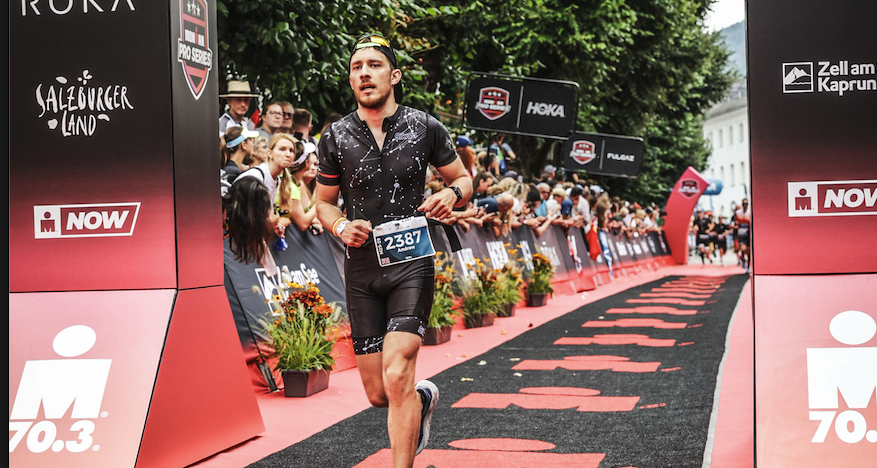Lessons from my first Half-Ironman
Learning the hard way
Below are notes stream-of-consciencenessed from my experience.
I hope at least some may be of use, at least to a comic effect.
Swim
-
Practice at least once swimming in open water mass start. I was confident in swimming the distance in the pool but a mass start with hundrens of bodies in the water kicking in the same direction is something else entirely.
-
Make sure your wetsuit is securely zipped up and zip tucked away - it’s not a nice feeling having this come undone during the race.
-
Focus on technique before trying to improve endurance. This is where swimming really differs from the other two disciplines. Getting the technique right first will stop you being frustrated and re-learning bad habits later. Effortless Swimming is a great channel although try not to dive too deep into advanced content.
Cycle
-
Don’t underestimate hill training - especially if you’re doing a hilly course
-
Don’t underestimate time it takes to mess around with bike setup - especially if you’re new to cycling. A good chunk of my time was spent on learning how to replace tyres, setup the bike to my size, change the rear cassette, change the chain etc etc
-
Don’t be afraid to practice control by looking silly riding slowly in a parking lot, especially if you’ve picked up the bike as an adult
-
Don’t just go on the gym bike - get your body used to your bike and flag any potential problems
-
90k will probably take over 3 hours - make sure you’re comfortable doing this distance in training and not just doing training sessions of 60-90 mins
-
Get a bike fit early if you can afford it - or at least ensure your bike setup is not working against you. This is a simple but effective video
-
Don’t underestimate how many gears you need to shift down for a hill - don’t fight against the bike and blow up a 1/3 of the way up
-
Check you have a gear ratio that suits you and the course you’re doing
Run
-
9-1 training. This is great for reducing risk of injuries by trying to continously run for longer distances and grinding your body down. It also mimicks what you might do during the race - stop and walk at every aid station which is a good idea for a lot of people.
-
Stick to Zone 2. This is advised by pretty much everyone out there but if you’re a self taught runner like me you might be used to going above that on your average runs. If you blow up, your time will only be slower.
-
No fiber or protein before run. Learned the hard way. These take longer for your stomach to process so will let your imagination fill in the blanks as to what happens when all of that food is bouncing in your stomach during the run
-
Don’t push through pain - if it hurts beyond soreness stop. Another one learned the hard way. You’re not David Goggins and unless you want his knee surgeries you probably shouldn’t aspire to be either.
-
Keep technique simple and don’t force your body into anything unnatural. Body lean slightly forwards, foot lands under torso, arms forward and relaxed. There are lots of great youtube videos on this. Use easy runs to practice good technique.
-
Don’t change technique overnight and go for a 10k at tempo pace. Another one learned the hard way.
-
Don’t forget sunscreen on race day! This is one that tends to be forgotten but can make some difference to how comfortable you feel.
General
-
Get a tri-suit! This will make transitions between stages easier. It doesn’t have to be expensive if you’re new - this is the one I got and it served me well
-
Get a Garmin watch. This is an all in one swim, bike & run tracker. I got a Garmin 945 refurbished on Ebay and it has lasted me over a year and going strong
-
Don’t be confused by Garmin HR Zones. Garmin Zone 3 is really Zone 2.
-
Do a first Ironman close to home will be less pressure. It’s exciting to go abroad to somewhere like Zell am See and will be a great experience but also a lot of stress and hassle worrying about bike transport, hotels, getting around etc. Doing one closer to home will allow you to focus on the event itself.
-
Bring someone with you! Crossing the finish line is much better if you have people around you to share the experience with
